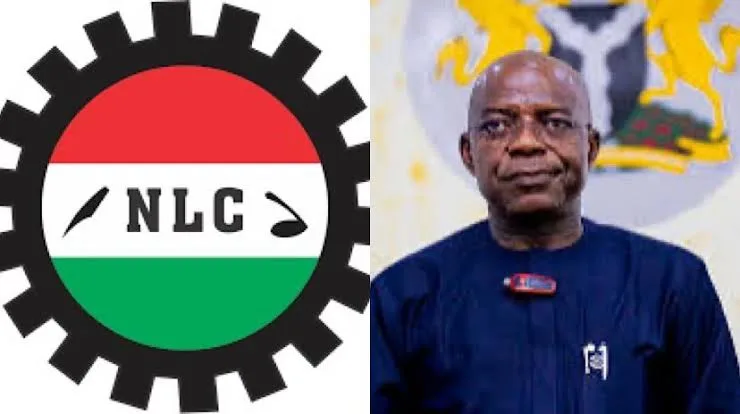The Abia State Government has disputed the claim by the Nigeria Labour Congress (NLC) that it is among the 14 states yet to implement the new N70,000 minimum wage.
The NLC had threatened to begin a strike on Monday over the non-compliance of affected states with the implementation of the new minimum wage.
At a joint press conference with the state leadership of the Organised Labour at the Government House in Umuahia on Sunday, Pastor Caleb Ajagba, Chief of Staff to the Governor, clarified that Abia State began implementing the new minimum wage in October.
He expressed surprise at the NLC’s inclusion of Abia among the defaulting states, given that the state was one of the first to pay workers the new minimum wage.
“It is misinformation that Abia State has not started implementing the new minimum wage. Abia workers received their first salary according to the new wage in October, and the same was done in November,” Ajagba stated.
He reiterated Governor Alex Otti’s commitment to prioritizing the welfare of Abia workers and maintaining industrial harmony.
Ajagba acknowledged that there were some concerns raised by the Organized Labour after the implementation but assured that the government was committed to addressing them.
“Governor Otti has always demonstrated his commitment to ensuring industrial harmony and prioritizing the welfare of Abia workers. Abia was among the first states to engage with the Organized Labour after the federal government concluded the issue of the minimum wage. We finalized discussions in October, and the first payment was made that same month,” Ajagba said.
He added that any issues raised by the labour unions would be carefully examined and resolved.
The State Chairman of the NLC, Comrade Ogbonnaya Okoro, and the Chairman of the Trade Union Congress (TUC), Comrade Ihechi Eneogwe, confirmed that Abia State had begun implementing the new minimum wage in October.
“Abia implemented the minimum wage in October, but it did not fully benefit all workers. It favored workers from level 1 to 7, while those from level 8 to 16 were not adequately addressed,” Okoro explained. “After noticing this anomaly, the Organized Labour wrote a letter to the government, urging that workers between levels 8 and 16 should be better placed.”
Okoro further emphasized that after the implementation, workers at level 7 were paid more than those at level 10, which should not have been the case.
The press conference was attended by several top government officials, including the Commissioner for Finance, Mr. Uwaoma Ukandu; the Commissioner for Labour and Productivity, Comrade Sunny Onwuma; Head of Service, Dr. Ngozi Obioma; and Special Adviser to the Governor on Media and Publicity, Mr. Ferdinand Ekeoma.

